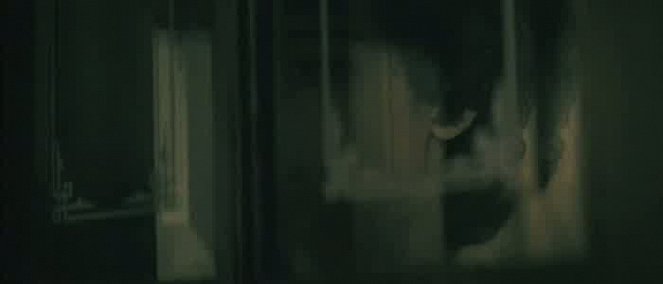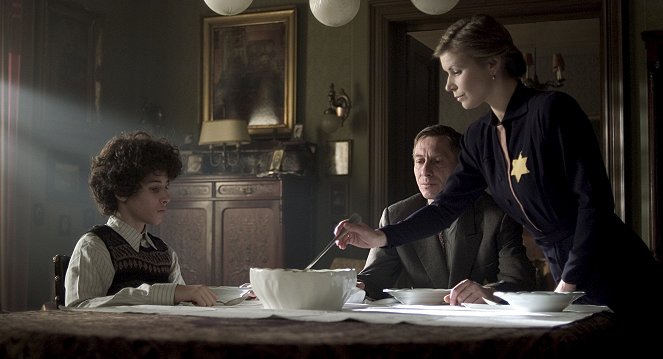Regie:
Lajos KoltaiKamera:
Gyula PadosMusik:
Ennio MorriconeBesetzung:
Marcell Nagy, Béla Dóra, Bálint Péntek, Áron Dimény, Péter Fancsikai, Zsolt Dér, András M. Kecskés, Dániel Szabó, Péter Vida, Endre Harkányi (mehr)Inhalte(1)
Budapest 1944 Die jüdische Bevölkerung hofft auf ein baldiges Ende von Verfolgung und Krieg. Der 14-jährige György Köves muss den schmerzhaften Abschied seines Vaters ins "Arbeitslager", die eigene Brandmarkung und die seiner Freunde durch den Judenstern erleben. Er kommt in die Konzentrationslager Auschwitz, Buchenwald und Zeitz. Hierbei erfährt er Leid, Demütigung, Solidarität, Angst und Gleichgültigkeit. György überlebt den Holocaust und kehrt nach Kriegsende nach Budapest zurück. Hier jedoch ist nichts mehr wie es war, keine vertrauten Gesichter, keiner der zuhört - er ist fremd in seiner eigenen Heimatstadt. (Verleiher-Text)
(mehr)Videos (1)
Kritiken (2)
After watching this movie, I did a lot of long and hard thinking and I eventually came to the conclusion that this film presents probably the rawest view of concentration camps and the extermination of Jews that I have ever seen in a movie. It might be because this film is a raw depiction of the life of a boy that has a pretty normal start. But once the war breaks out, they send him to a concentration camp and at that point the movie gets so depressing that it doesn’t recover even once the war is over. But it does involve a whole number of interesting ideas. For instance, I was surprised about how the Jews made fun of the concentration camps at the start. I was also surprised at the end of the movie about the fact that not every Jew went to a concentration camp. And what I found worst about it was the indifference and lack of interest of everybody after the war was over who were only interested in finding out what was happening in the camps, but nobody asked the particular people how they were feeling and whether they would be able to come to terms with all the things they had gone through. In the very last minutes of the film, little Gyuri, who was by the way portrayed excellently by Marcell Nagy, speaks about such things that would never even occur to me. But as you can see, the human brain is incredibly adaptable and our psyche can do incredible tricks with a child. For instance, it can turn a concentration camp into a nice place…
()
The high-quality book awarded with a Nobel Prize is clearly felt in the film, as it is a powerful story whose main advantage is authenticity and absence of emotional manipulations, so well-known from Spielberg's films. This is simply a credible story of a hero who survived extermination concentration camps and returned to find that his former material and emotional basis is in ruins and he must start over from scratch. I liked this film more than Schindler's List for its realism and credibility, but the sobriety with which it is filmed deducts a fifth star. Overall impression: 85%.
()



Werbung